
Find Help
More Items From Ergsy search
-

Can a wealth tax impact economic behavior?
Relevance: 100%
-

Could a wealth tax affect economic growth in the UK?
Relevance: 74%
-

How do economists view the impact of wealth taxes?
Relevance: 66%
-

What is a Wealth Tax?
Relevance: 66%
-

What is the objective of a wealth tax?
Relevance: 63%
-

What is the Wealth Tax in the UK?
Relevance: 62%
-

Would a wealth tax replace other taxes in the UK?
Relevance: 61%
-

What is the wealth tax in the UK?
Relevance: 61%
-

How does a wealth tax differ from an income tax?
Relevance: 61%
-

Who is typically subject to a wealth tax?
Relevance: 61%
-
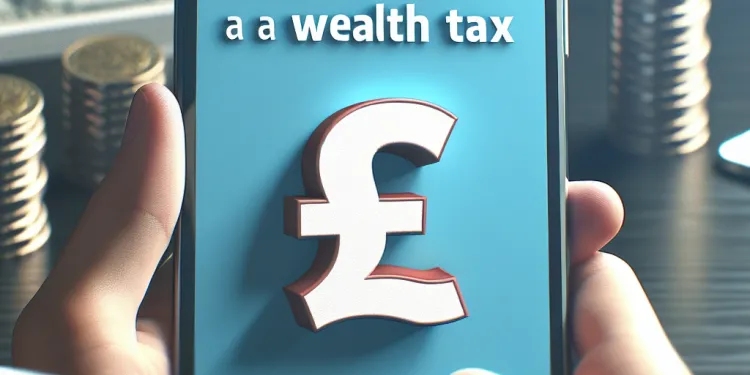
What are the challenges of implementing a wealth tax?
Relevance: 61%
-

Could a wealth tax encourage tax avoidance?
Relevance: 60%
-

Why doesn't the UK have a wealth tax?
Relevance: 60%
-

How is a wealth tax typically calculated?
Relevance: 60%
-
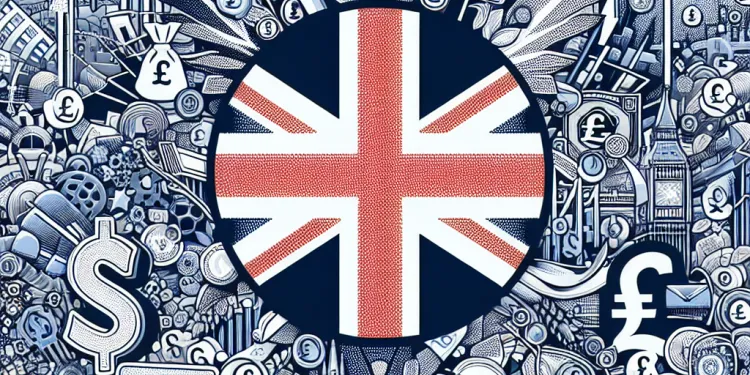
How do other countries implement a wealth tax?
Relevance: 59%
-
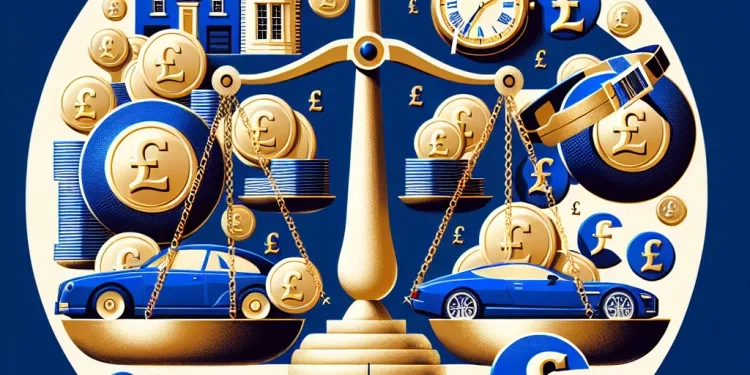
What arguments are made for a wealth tax in the UK?
Relevance: 59%
-

How might a wealth tax affect wealthy individuals?
Relevance: 59%
-

Can a wealth tax be levied annually?
Relevance: 58%
-

What are common arguments in favor of a wealth tax?
Relevance: 58%
-

Has the UK ever had a wealth tax?
Relevance: 58%
-

How might a wealth tax impact inequality in the UK?
Relevance: 55%
-
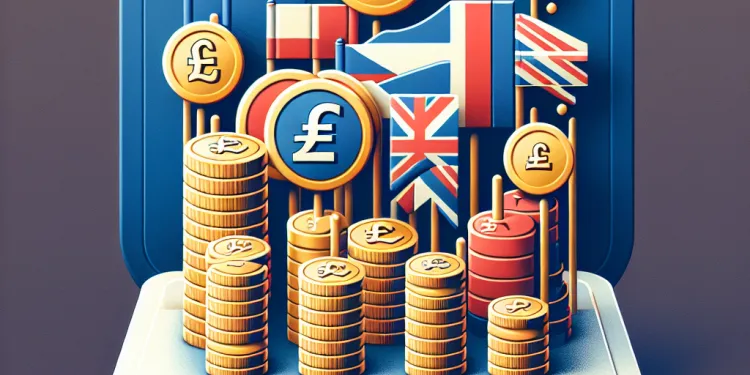
Has any political party in the UK supported a wealth tax?
Relevance: 54%
-

Are there any countries currently implementing a wealth tax?
Relevance: 53%
-

Would a wealth tax apply to foreign assets?
Relevance: 52%
-

Is real estate included in wealth tax calculations?
Relevance: 52%
-

What are the administrative costs of a wealth tax?
Relevance: 49%
-

How do governments ensure compliance with wealth tax laws?
Relevance: 46%
-
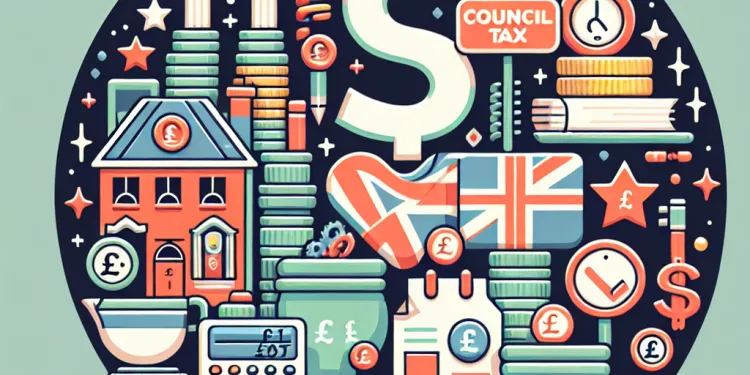
How does council tax relate to wealth in the UK?
Relevance: 46%
-

What exemptions are commonly associated with wealth taxes?
Relevance: 41%
-

Are there alternatives to a wealth tax for addressing inequality?
Relevance: 39%
-

What are common criticisms of a wealth tax?
Relevance: 39%
-
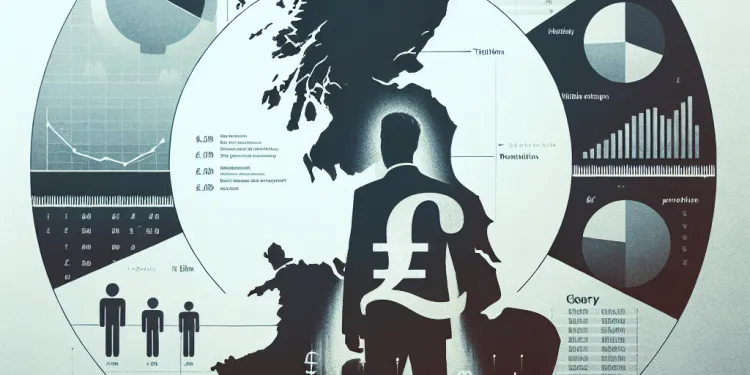
Do public opinion polls support a wealth tax in the UK?
Relevance: 38%
-

Do wealth taxes differ between countries?
Relevance: 38%
-
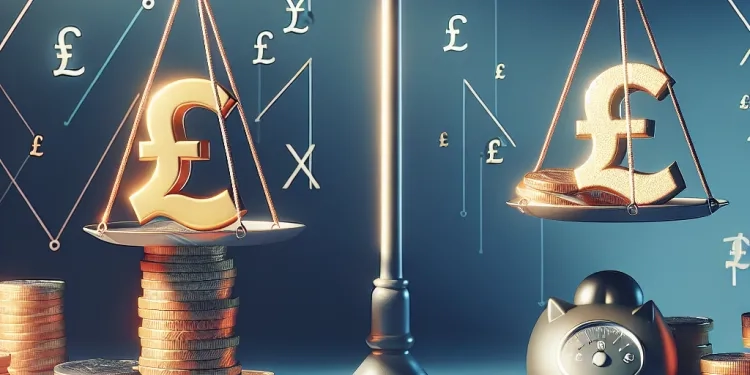
What taxes in the UK target wealth?
Relevance: 36%
-

Has the idea of a wealth tax been discussed in political debates?
Relevance: 35%
-

What types of assets are typically subject to a wealth tax?
Relevance: 34%
-
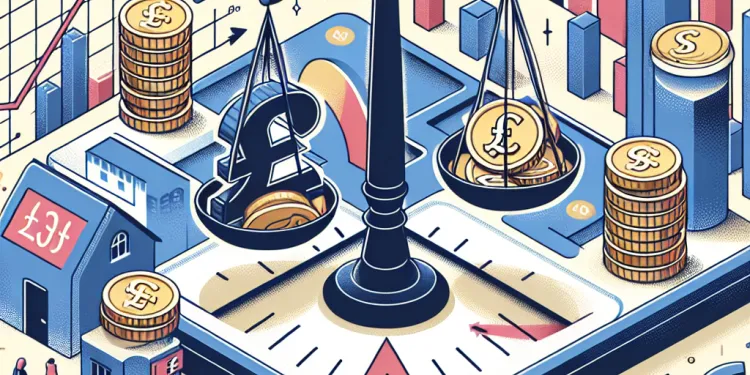
How do economic conditions influence interest rate changes?
Relevance: 32%
-

What is applied behavior analysis (ABA)?
Relevance: 31%
-
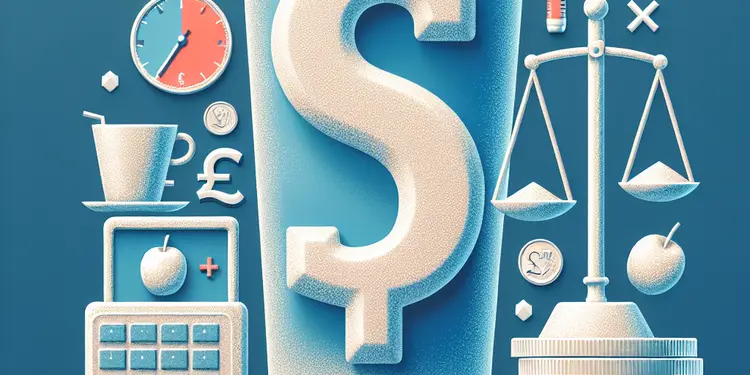
Has the sugar tax been effective?
Relevance: 31%
-

What constitutes economic abuse under the Domestic Abuse Act 2021?
Relevance: 31%
Introduction to Wealth Tax
A wealth tax is a levy on the total value of personal assets, including bank deposits, real estate, financial securities, and trusts. It is an economic tool used by some governments to address economic inequality and generate revenue. In the UK, discussions around implementing a wealth tax have gained traction as policymakers seek solutions for fiscal challenges and social equity issues. This article explores whether a wealth tax can impact economic behavior within the UK context.
Potential Impacts on Investment
A primary concern regarding the implementation of a wealth tax is its potential impact on investment behavior. High-net-worth individuals might change their investment strategies to minimize tax liabilities. This could lead to reduced investments in certain asset classes, particularly those that are more liquid and thus easier to sell or transfer to avoid taxation. However, supporters argue that a well-designed wealth tax could limit tax evasion opportunities through comprehensive coverage and robust enforcement mechanisms.
Effects on Spending and Consumption
Wealth taxes might influence consumption patterns, especially among the affluent. If individuals anticipate losing a portion of their wealth to taxes, they may reduce discretionary spending, impacting luxury markets and high-end retailers. Conversely, if the revenues from wealth taxes are used to fund public services or social programs, there could be an increase in overall demand and consumption among lower-income groups, potentially balancing the economic effects.
Impact on Saving and Wealth Accumulation
Another consideration is the potential impact on personal savings and wealth accumulation. Wealth taxes could discourage long-term savings if individuals perceive that accruing wealth will result in higher tax burdens. This might lead to a shift in focus towards consumption or investments in non-taxable resources, such as art or collectibles. Policymakers would need to carefully consider how wealth taxes are structured to avoid unintended consequences on savings rates and wealth distribution.
Considerations for Economic Inequality
Wealth taxes are often proposed as a tool to address economic inequality. By redistributing wealth from the richest individuals to fund public services, governments could theoretically reduce disparities in living standards. However, the actual effectiveness of wealth taxes in reducing inequality depends on their design and implementation, including tax rates, thresholds, and exemption allowances. Some argue that complementary policies, such as income taxes and social benefits, are necessary to achieve significant outcomes.
Conclusion
In conclusion, a wealth tax could potentially impact economic behavior in the UK by influencing investment decisions, altering consumption and savings patterns, and addressing economic inequality. While it presents opportunities for revenue generation and social equity, its success largely depends on careful policy design and implementation. Policymakers must weigh the benefits and challenges to ensure that a wealth tax effectively contributes to economic stability and fairness.
Introduction to Wealth Tax
A wealth tax is money some people have to pay to the government based on what they own. This can include money in the bank, houses, and other valuable things. Some governments use it to help make things fairer and to collect money for public needs. In the UK, there are talks about starting a wealth tax to help with money problems and fairness among people. This article looks at how a wealth tax could change how people use their money in the UK.
Potential Impacts on Investment
One worry about a wealth tax is that it might change how rich people invest their money. They might try to find ways to pay less tax, which could mean they invest less in certain things. This might be things they can quickly sell if they have to pay taxes. But some people think that if the tax is done well, it will be harder to avoid and could be fair.
Effects on Spending and Consumption
Wealth taxes might change how rich people spend their money. If they think they will lose some money to taxes, they might spend less on fancy items. But if the money from taxes is used to help the community, like by paying for public services, it could mean more people have money to spend on everyday things, which can be good for shops and businesses.
Impact on Saving and Wealth Accumulation
Another thing to think about is how a wealth tax might affect saving money. If people think saving money will mean paying more taxes, they might decide to spend their money instead. They might also invest in things that do not get taxed, like art. It is important to plan the wealth tax well to make sure it does not cause problems and is a fair system for everyone.
Considerations for Economic Inequality
Wealth taxes could help make things fairer by taking some money from the richest people and using it to help everyone, like by funding public services. This could help make everyone's life better and fairer. But it depends on how the tax is set up, including who it applies to and how much they are taxed. Some people think we also need other things like fair income taxes and benefits to really make a difference.
Conclusion
In short, a wealth tax in the UK could change how people use their money. It might affect how they invest, spend, and save money. It could also help make things fairer. But for it to work well, it needs to be planned carefully. Leaders need to look at all the good and bad points to ensure it helps make the economy stable and fair for everyone.
Frequently Asked Questions
What is a wealth tax?
A wealth tax is a levy on the net value of assets owned by individuals. It includes financial assets, real estate, and other forms of personal property.
How might a wealth tax impact economic behavior?
A wealth tax can impact economic behavior by incentivizing individuals to change how they invest, work, and save, potentially leading to reduced capital accumulation and altered consumption patterns.
Can a wealth tax lead to capital flight?
Yes, a wealth tax can lead to capital flight as wealthy individuals might seek to relocate their assets or themselves to jurisdictions with lower or no wealth taxes.
Does a wealth tax encourage tax avoidance or evasion?
A wealth tax can encourage tax avoidance or evasion as taxpayers may engage in complex strategies to reduce their taxable wealth or conceal assets.
How might a wealth tax affect savings rates?
A wealth tax could decrease savings rates as individuals may be less inclined to save if their accumulated wealth will be taxed.
Could a wealth tax discourage entrepreneurship?
Potentially, as entrepreneurs might see reduced incentives to start or expand businesses if a significant portion of their wealth will be taxed annually.
What is the potential impact of a wealth tax on investments?
A wealth tax could lead to reduced investment in certain assets as individuals seek to minimize their tax liability, potentially impacting economic growth.
Can a wealth tax lead to economic inequality reduction?
If effectively designed and implemented, a wealth tax can reduce economic inequality by redistributing wealth from the richest individuals to fund social programs and public goods.
How might a wealth tax impact consumer spending?
A wealth tax may reduce consumer spending among the wealthy as they might have less disposable income after paying the tax, potentially affecting luxury goods markets.
Does a wealth tax affect labor supply?
A wealth tax is less likely to directly affect labor supply, but it might influence work decisions indirectly if wealth accumulation is tied to work incentives.
Can implementing a wealth tax lead to growth in tax administration costs?
Yes, implementing a wealth tax can result in higher tax administration and compliance costs because of the complexity in assessing and valuing wealth accurately.
How does a wealth tax differ from income tax?
A wealth tax is levied on net worth, whereas an income tax is levied on the earnings individuals receive from salary, investments, and other sources.
Can a wealth tax stimulate economic growth?
While a wealth tax might redistribute resources towards more productive uses, its impact on growth is debated; it could deter investment and savings, potentially hindering growth.
What challenges exist in implementing a wealth tax?
Challenges include accurately assessing asset values, preventing avoidance and evasion, and ensuring fairness and efficiency in taxation.
Are there examples of countries with a wealth tax?
Several countries, such as France, Spain, and Norway, have implemented forms of wealth taxes, though they vary significantly in their scope and execution.
Why do some economists support a wealth tax?
Supporters argue that a wealth tax can address inequality, raise revenue without distorting labor markets, and tax accumulated wealth that escapes income taxes.
Why do some oppose a wealth tax?
Critics argue it can deter savings and investment, be difficult to enforce, lead to capital flight, and disproportionately affect entrepreneurial activity and innovation.
How might a wealth tax affect long-term capital formation?
A wealth tax could discourage long-term capital formation by making it more costly for individuals to hold onto wealth needed for investment purposes.
Could a wealth tax influence real estate markets?
Yes, a wealth tax could influence real estate markets as property values may adjust to reflect the additional tax burden, and individuals may shift investments accordingly.
Is a wealth tax considered progressive?
Yes, a wealth tax is generally considered progressive as it targets the wealthiest individuals, who pay based on their asset holdings rather than income levels.
What is a wealth tax?
A wealth tax is when the government takes money from people who have a lot of things worth a lot of money. These things can be houses, cars, or money in the bank.
If you find it hard to read, you can ask someone to help you. You can also use tools that read the text out loud.
A wealth tax is a way for the government to collect money based on what people own. This can be money, houses, or other things that belong to a person.
Tools that can help with reading are audiobooks or apps that read text out loud. Pictures and illustrations can also make understanding easier.
How could a wealth tax change what people do with their money?
A wealth tax means rich people give some money to the government. This could change what they do with their money.
Here are some ways it might change:
- Savings: Rich people might save less money because more is taxed.
- Investments: They could change where they put their money. They might choose safer places.
- Buying things: Rich people might buy fewer big things like houses or cars. They might want to sell things to have more cash.
- Working: They might change how much they work or what jobs they take if they keep less money from their work.
Helpful Tips:
- Break big ideas into smaller parts.
- Use pictures to help you understand money topics.
- Talk to someone to help explain these ideas.
A wealth tax is when people pay money to the government based on how much they own. It can change how people use their money. People might change how they save, work, or spend their money. This can mean they save less money and spend it in different ways.
Can a tax on money make people move their money away?
Yes, a wealth tax can make rich people move their money or themselves to places with lower taxes or no wealth taxes at all.
Do rich people try to dodge taxes if there's a wealth tax?
A wealth tax means the government takes some money from rich people. Sometimes, people try to avoid paying by hiding their money or using tricky methods.
Here are some tools to help understand:
- Pictures: Draw pictures to show how taxes work.
- Simple words: Use words that are easy to understand.
- Stories: Tell a story about someone paying taxes.
How does a wealth tax change the way people save money?
A wealth tax means people might save less money. This is because if they save too much, they have to pay more tax on it.
Tip: To understand money better, try using tools like saving apps. They help you learn how to manage money.
Can a Tax on Money Stop People from Starting New Businesses?
A "tax on money" means to pay the government some extra money when you have a lot. Some people wonder if this will stop people from starting new businesses.
When you start a new business, you have to think about making money. If you have to give a lot of money to the government, you might stop and think, "Should I do this?"
Here are some tools to help you understand better:
- Speak Aloud Tool: Use a tool that reads the text out loud to you.
- Picture Helpers: Use pictures or drawings to see what happens when you pay a tax.
These can help you understand more about taxes and starting businesses.
Business owners might not want to start or grow their businesses if they have to pay a lot of tax every year on their money.
How might a wealth tax change how people invest their money?
A wealth tax means people with lots of money might have to pay more taxes. This could make them want to change where they put their money to avoid paying too much. If they do this, it might lead to less money being put into things that help the economy grow.
Can a tax on rich people help make things fairer for everyone?
A wealth tax can help make things fairer. It takes some money from the very rich. This money is used to help everyone by paying for schools, hospitals, and parks.
How could a wealth tax change the way people spend money?
A wealth tax means rich people pay extra money to the government.
If rich people have less money, they might spend less on things like cars and holidays.
This could change how much money shops and businesses make.
If you find reading hard, try reading with a friend or using a reading app to help you.
A wealth tax is when rich people pay extra money to the government. Because of this tax, rich people might not have as much money to spend. This might mean they buy fewer fancy things. This could change the businesses that sell fancy items.
Does a tax on money change how much people work?
A wealth tax is a type of tax on how much money and property a person has. It probably won't change how much people work right away. But, it might change their work choices if they think saving money is linked to working harder.
Will a wealth tax make tax costs go up?
A wealth tax is when rich people give some of their money to the government. But, it might cost money to check and collect these taxes. So, will it cost more to have a wealth tax?
Tools that can help:
- Using a calculator can help with understanding numbers.
- Talking to someone who knows about money can give support.
A wealth tax can cost a lot to manage because it is hard to figure out how much money and stuff people have.
What is the difference between a wealth tax and an income tax?
A wealth tax is money you pay on things you own, like houses or cars. An income tax is money you pay on what you earn, like money from a job.
Here are some tips to help you understand:
- Use pictures: Draw your house or car for a wealth tax. Draw money or paychecks for an income tax.
- Ask questions: If you're not sure, ask someone to explain more.
- Use apps: Apps can help you learn new words. Give them a try!
A wealth tax is a tax on how much money and things you own. An income tax is a tax on the money you make from work, savings, and other places.
Does a tax on rich people's money help the economy grow?
A wealth tax means taking some money from people who have a lot of it. This money can be used to help everyone by improving things like schools or hospitals. But, some people think this could stop people from wanting to invest or save money. If people don’t invest or save, it might be harder for the economy to grow.
What problems happen with a wealth tax?
A wealth tax is when rich people pay money to the government because they have a lot of money and things. Making a wealth tax can be hard.
Here are some problems that can happen:
- It can be hard to know how much everything rich people own is worth.
- Some rich people might try to hide their money so they don't have to pay the tax.
- Countries need to make good rules, so the tax is fair to everyone.
Tools to help:
- Use pictures or charts to better understand what a wealth tax is.
- Ask someone for help if any parts are confusing.
There are some hard things we need to think about:
1. Figuring out how much things are really worth.
2. Making sure people don't try to avoid paying taxes or cheat.
3. Making sure taxes are fair and work well for everyone.
Tools that can help include talking to experts, using easy-to-understand books or websites, and using simple math tools like calculators.
Do any countries have a tax on wealth?
Some countries ask rich people to pay extra money called a "wealth tax." This means if someone has a lot of money or things, they give some money to the government.
Some places, like France, Spain, and Norway, have something called wealth taxes. This means people with a lot of money pay extra taxes. Each country does it in a different way.
Why do some money experts like a wealth tax?
A wealth tax is when rich people pay extra money because they have a lot of stuff and money.
Here is why some money experts think wealth tax is good:
- It can help share money more fairly.
- The money from the tax can help pay for schools, doctors, and roads.
- It can make sure everyone pays their fair share.
If you need help understanding, you can:
- Ask a teacher or family member to explain.
- Use pictures or drawings to help you understand.
- Break down big words into smaller parts.
People who like the idea of a wealth tax think it can help in three ways:
1. It can make sure that everyone is treated more equally.
2. It can help the government get money without messing up jobs.
3. It can tax money that rich people have that doesn't get taxed like income.
Why do some people not like a wealth tax?
Some people think it might stop people from saving or investing money. It can be hard to make everyone follow the rules. It might make people move their money to other places. It could be unfair to people who start businesses and create new things.
What is a Wealth Tax and How Does it Affect Saving Money?
A wealth tax is when people with lots of money pay some of it as a tax.
This tax can make people save money in different ways.
When people save money for a long time, it's called "long-term capital formation." This helps businesses grow and create jobs.
If a wealth tax is too high, people might save less money, and this can hurt businesses.
Some tools can help understand taxes better:
- Picture charts that show how money is saved over time.
- Simple math games to learn about saving and spending.
- Talking to a financial advisor to get advice.
These tools can make it easier to understand how a wealth tax works.
A wealth tax means people with lots of money might have to pay more. This can make it harder for them to keep their money and invest it in things that help everyone, like new businesses or jobs.
Can a wealth tax change home prices?
A wealth tax is when rich people pay money to the government based on what they own.
This can include houses, cars, or businesses.
Some people think a wealth tax might make house prices go up or down.
Here's how:
- If rich people pay more tax, they might sell houses to get money.
- If they sell houses, there could be more homes on the market.
- More homes for sale could make house prices go down.
Using a calculator can help you see how taxes work with house prices.
Talking with someone you trust, like a family member, can also help you understand.
Yes, a wealth tax might change how people buy and sell houses. House prices could change because of the new tax. People might also choose to invest their money differently when there is a wealth tax.
If reading is hard, you can try using a reading app or ask someone to help you. Reading tools can make things easier by reading the text out loud.
Does a wealth tax take more from the rich?
A wealth tax is a tax that people with a lot of money have to pay. It means rich people pay more tax than people with less money. This can help make things fairer.
If you want to learn more, you can use tools like picture books or videos. You can also ask someone to explain it to you.
Yes, a wealth tax is considered fair. It is for the richest people. They pay based on what they own, not just what they earn.
Useful Links
Have you found an error, or do you have a link or some information you would like to share? Please let us know using the form below.
-->
This website offers general information and is not a substitute for professional advice.
Always seek guidance from qualified professionals.
If you have any medical concerns or need urgent help, contact a healthcare professional or emergency services immediately.
Some of this content was generated with AI assistance. We’ve done our best to keep it accurate, helpful, and human-friendly.
- Ergsy carfully checks the information in the videos we provide here.
- Videos shown by Youtube after a video has completed, have NOT been reviewed by ERGSY.
- To view, click the arrow in centre of video.
- Most of the videos you find here will have subtitles and/or closed captions available.
- You may need to turn these on, and choose your preferred language.
- Go to the video you'd like to watch.
- If closed captions (CC) are available, settings will be visible on the bottom right of the video player.
- To turn on Captions, click settings .
- To turn off Captions, click settings again.
More Items From Ergsy search
-

Can a wealth tax impact economic behavior?
Relevance: 100%
-

Could a wealth tax affect economic growth in the UK?
Relevance: 74%
-

How do economists view the impact of wealth taxes?
Relevance: 66%
-

What is a Wealth Tax?
Relevance: 66%
-

What is the objective of a wealth tax?
Relevance: 63%
-

What is the Wealth Tax in the UK?
Relevance: 62%
-

Would a wealth tax replace other taxes in the UK?
Relevance: 61%
-

What is the wealth tax in the UK?
Relevance: 61%
-

How does a wealth tax differ from an income tax?
Relevance: 61%
-

Who is typically subject to a wealth tax?
Relevance: 61%
-

What are the challenges of implementing a wealth tax?
Relevance: 61%
-

Could a wealth tax encourage tax avoidance?
Relevance: 60%
-

Why doesn't the UK have a wealth tax?
Relevance: 60%
-

How is a wealth tax typically calculated?
Relevance: 60%
-

How do other countries implement a wealth tax?
Relevance: 59%
-

What arguments are made for a wealth tax in the UK?
Relevance: 59%
-

How might a wealth tax affect wealthy individuals?
Relevance: 59%
-

Can a wealth tax be levied annually?
Relevance: 58%
-

What are common arguments in favor of a wealth tax?
Relevance: 58%
-

Has the UK ever had a wealth tax?
Relevance: 58%
-

How might a wealth tax impact inequality in the UK?
Relevance: 55%
-

Has any political party in the UK supported a wealth tax?
Relevance: 54%
-

Are there any countries currently implementing a wealth tax?
Relevance: 53%
-

Would a wealth tax apply to foreign assets?
Relevance: 52%
-

Is real estate included in wealth tax calculations?
Relevance: 52%
-

What are the administrative costs of a wealth tax?
Relevance: 49%
-

How do governments ensure compliance with wealth tax laws?
Relevance: 46%
-

How does council tax relate to wealth in the UK?
Relevance: 46%
-

What exemptions are commonly associated with wealth taxes?
Relevance: 41%
-

Are there alternatives to a wealth tax for addressing inequality?
Relevance: 39%
-

What are common criticisms of a wealth tax?
Relevance: 39%
-

Do public opinion polls support a wealth tax in the UK?
Relevance: 38%
-

Do wealth taxes differ between countries?
Relevance: 38%
-

What taxes in the UK target wealth?
Relevance: 36%
-

Has the idea of a wealth tax been discussed in political debates?
Relevance: 35%
-

What types of assets are typically subject to a wealth tax?
Relevance: 34%
-

How do economic conditions influence interest rate changes?
Relevance: 32%
-

What is applied behavior analysis (ABA)?
Relevance: 31%
-

Has the sugar tax been effective?
Relevance: 31%
-

What constitutes economic abuse under the Domestic Abuse Act 2021?
Relevance: 31%


